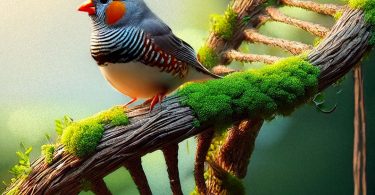A bird native to Australia has natural properties that enable it to stay young as it ages!
Aging is characterized by biological transformations that lead to organ degradation and then progressively to death.
This rule is not universal in the animal world. Thus, some animals live without signs of senescence until they die. The desert tortoise (Gopherus agassizii), for example, sees its fertility increase and, more curiously, its mortality decrease throughout its life (1).
The human organism cannot defend itself against glycation, which inevitably leads to aging. This is apparently the case in all mammals, but not in all animals.
A team of French researchers has highlighted the following paradox: The Australian zebra finch, while having high levels of plasma glucose, does not present any form of glycated hemoglobin (2).
How these birds escape the pro-aging effects of glycation remains unknown to this day, and is probably linked to the very particular evolution of birds.
The discovery of the mechanisms explaining the zebra finch’s resistance to glycation opens up promising avenues in anti-aging research.
© AGE Breaker updated 06 2023
[Glycation is one of the major causes of aging. Resulting from the fixation of sugars on the proteins constituting the organism, glycation generates toxic compounds that cause cellular aging. Glycation is particularly involved in metabolic disorders, skin aging and cognitive decline.] [AGE BREAKER, patented nutritional supplements, based on rosmarinic acid, recognized by aging specialists around the world for their properties to reverse the effects of glycation.]More on www.agebreaker.com
#agebreaker #glycation #antiaging #longevitymedicine #preventivemedicine #preventivehealth #skinaging #4pmedicine #advancedglycationendproducts
1: O.-R. Jones et Al. Diversity of ageing across the tree of life. Nature. 2014 Jan 9; 505(7482): 169–173. doi: 10.1038/nature12789
2: C. Brun et Al. Resistance to glycation in the zebra finch: Mass spectrometry-based analysis and its perspectives for evolutionary studies of aging.
Experimental Gerontology. Volume 164, July 2022, 111811. Available online 25 April 2022. doi.org/10.1016/j.exger.2022.111811









